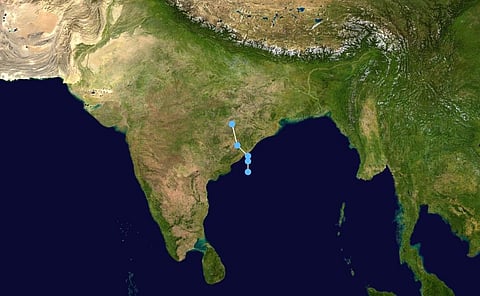

The climate change discourse and climate science have made it clear that impacts of climate change are imminent. The IPCC has highlighted that an increase in temperature of 1.5 degree C would result in large multi-sector impacts especially in regions with vulnerable populations such as South Asia, including India. In such a scenario, the need to build climate resilience cannot be overemphasised.
Provisioning of climate services is vital to build climate resilience. Taking this into cognisance, the World Meteorological Organization and its partners formulated the Global Framework for Climate Services (GFCS) in 2009. The framework is focused on “enabling better management of the risks of climate variability and change” through provisioning of climate services at global, regional and national scale.
At the national level, the National Meteorological and Hydrological Services (NMHS) serve as the nodal implementing agency. NMHSs are the repositories of the observational networks and metadata, and possess technical skills to convert metadata into customized products, applications and services. So they are best placed to provide climate services. In India, the role of NHMS is played by India Meteorological Department (IMD).
A new study, published in Current Science, has examined what it will take for IMD to transform itself from being a weather-ready to a climate-smart organization.
Since its establishment in 1875, IMD has come a long way from measuring gauges to supercomputers, and being the first among developing countries, to have its own satellite system. As far as weather services are concerned, IMD is already at par with international standards.
However, in the realm of climate services, IMD has been providing climatological data services to numerous users through its National Data Centre (NDC) at Pune. The NDC is the repository of all observational data, covering over a century. Under the GFCS, IMD established Climate Research and Services Division in 2017 to enhance the quality of climate services. The major services currently provided by this division are operational Long-range forecast and its verification; climate monitoring and annual climate statement; and supply of meteorological data.
For effective climate services, the distinction between ‘weather’ and ‘climate’ services needs to be understood clearly. The distinction lies in time scale and customising the information to end user’s specific requirements. Weather services deal with imminent weather, whereas climate services deal with seasonal, decadal and much longer time frames. They further highlight that the end user product of climate services is generally in the form of tools, products, websites, or bulletins.
Another step is not to misread ‘climate research’ as ‘climate service’. Whereas climate research comprises of systematic investigation to enhance understanding of the subject, climate services are meant to provide usable information tailored to end user needs.
The GFCS framework has five interdisciplinary and integrated pillars that support the development and delivery of climate services to users namely - observations and monitoring; research, modelling and prediction; climate services information system; user interface platform; and capacity development. The framework focuses on five major priority areas - agriculture and food security, disaster risk reduction; energy, health and water.
An analysis of IMD’s work shows that it has been performing considerably well in the first three technical aspects of GFCS. However, more needs to be done in user interface platform and capacity development. In the context of climate services, IMD has a robust infrastructural capacity, but there is a gap between what information domain experts consider ‘useful’ and what information the end user considers as ‘usable’ in its decision making. To address this gap, interdisciplinary and social sciences skills of the technical staff need to be strengthened.
As regards strategy for dissemination of this information, IMD is already using communication and outreach methods through public service announcements, web portal and mobile apps. There is, however, need for public education initiatives like climate clearinghouses, map interfaces, podcasts, webinars, structured decision tools, graphical info systems to enable availability of right information to the right user to make right decisions.
Similarly, of the five priority areas in GFCS, IMD has been actively engaged in agriculture and food security, disaster risk reduction and water, and needs to expand its portfolio to include energy and health.
A successful transformation from a traditional NMHS to a weather-ready and climate smart organization is possible through a dynamic vision at apex level, which strengthens its capacity, consolidates its infrastructure, develops partnerships and further enriches the visibility of the organisation. Investing in procurement and promotion of human resources and experts from other cross-cutting domains would supplement its needs.
The study has proposed convergence of all knowledge resources on climate change, to holistically cover the entire spectrum of climate services, beyond a single department of the government. Such convergence may be convened by MoES, which is the repository of advanced research on climate change and should include MoEFCC, which is responsible for “international negotiations and domestic policies and actions” related to climate change.
This could be a national initiative through necessary legislation, to translate knowledge into action and wide-ranging research guiding climate change policy design.
The study has been done by Rajeev Kumar Mehajan (Science and Engineering Research Board); Abha Tewary (independent researcher) and Shreekant Gupta (Delhi School of Economics). (India Science Wire)